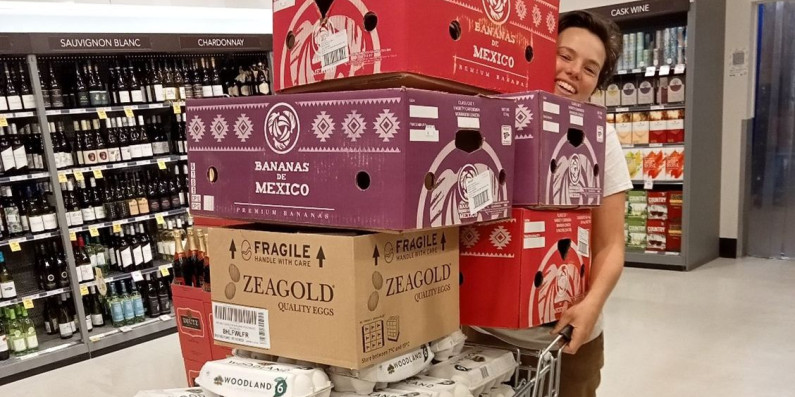
Addressing organic food waste in Whanganui
Whanganui Kai Hub (WKH) is a collaborative partnership project working to address organic food waste within the community. It is supporting the transition from food poverty to kai sovereignty.

Whanganui Kai Hub (WKH) is a collaborative partnership project working to address organic food waste within the community. It is supporting the transition from food poverty to kai sovereignty.
In April 2022, WKH was granted $105,000 from the Waste Minimisation Fund (WMF) to support the fit out of a centralised place to redistribute food waste, share nourishing rescued kai meals and provide a space for people to attend educational workshops on working towards a waste-free Whanganui.
The WMF funding has enabled WKH to open its community fridge to the public – currently three days a week, source excess kai across three local supermarkets and become a direct distributor of kai to those in need.
Since it's inception WKH has diverted over 13 tonnes of food waste from landfill.
Other recent highlights have been celebrating Matariki with events such as a traditional hangi (preparing 300 meals), gardening and star gazing (in partnership with City College and Faith McCallum). It has also held the Autumn Food Festival, in collaboration with UCOL, which included a number of cooking classes.
Find out more on the Whanganui Kai Hub website
Reducing food waste has positive environmental, social, and economic outcomes.
Nine per cent of Aotearoa New Zealand's biogenic methane emissions and four per cent of our total greenhouse gas emissions are from food and organic waste. This includes emissions in the food production process and from the decomposition of food waste in landfill.
Find out more on the Government's action on reducing food waste